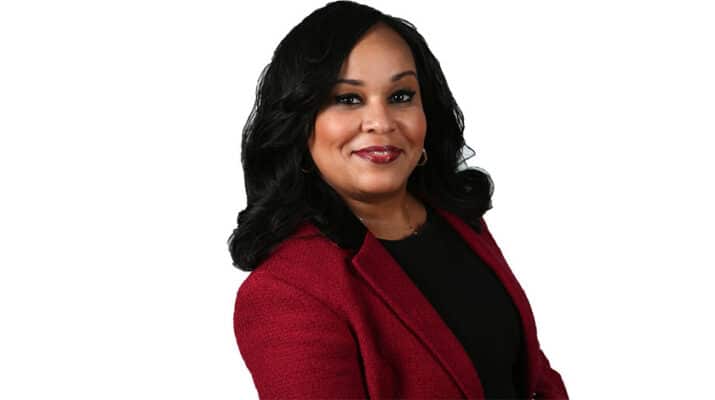By Jana Eisenberg
With all that Rev. Melody Rutherford brings to the table, it’s no wonder that Roswell Park Comprehensive Cancer Center selected her as best-suited to be its next director of spiritual care.
In her new role, which she had been filling on an interim basis during a national search, Rutherford now officially oversees the interfaith spiritual care department, which supports Roswell’s commitment to “whole person” or “whole patient” medical and health care. This type of care recognizes that spiritual, emotional, social and psychological care are as important as physical care.
Rutherford is passionately dedicated to helping others.
Possessed of a deep faith, a broad professional background and a non-judgmental nature, her connections in the community, and her leadership skills, both innate and earned, are bolstered by academic training. She is the first Black person to hold the position; this is part of the 123-year-old institution’s “conscientious and proactive efforts to achieve a diverse workforce.”
Her staff includes several administrators and chaplains, and is supplemented by visiting spiritual care providers from an expansive range of faiths and traditions, as well as many volunteers.
Working collaboratively with Roswell’s health care professionals, chaplains provide spiritual care to patients and their families and loved ones, regardless of religious affiliation. Among other programs, prayer and worship services, annual retreats, memorial services, and grief support groups are offered.
Rutherford has assumed this role with grace—a defining tenet for her, along with her abiding belief in love and mercy.
“I grew up as a Christian; I was taught love, honor and forgiveness—respect for God, and for our neighbors,” she said. “Whoever I meet, and wherever I go, I want to do it with love, grace, and mercy.”
“My church emphasized visiting the sick and those who are shut in,” continued Rutherford. “My heart felt it; I wanted to visit those who might be suffering. Earlier on, as a church minister, I was already listening to sick and hurting people; when I learned that ‘chaplaincy’ was a career, it made sense to professionalize it. Spiritual care is part of my life’s destiny.”
Like almost anything she does, she “professionalized” it completely: on top of her other degrees—a bachelor’s and two master’s (one in divinity, and the other in management), she is currently working toward a doctoral degree in ministry.
Higher education was encouraged by family; her mother, uncles and other family members are “strong advocates.” “Spiritual workers can benefit from other degrees and training,” she said. “It can help us learn how to collaborate with others to make real and lasting differences. It helps me feel more confident—I can offer more. It’s also important for me to grow and stretch.”
She and her staff are recognized by colleagues for their valuable contributions; physician Amy Case, Roswell Park’s Lee Foundation Endowed Chair of the Palliative and Supportive Care Department is one of Rutherford’s champions, and a firm believer in the whole patient philosophy.
“The ‘whole person approach’ includes that spiritual piece; what Melody and her team do is to connect people—especially those who might be approaching the end of life—with what brings them meaning,” said Case.
“If someone says they’re not spiritual or religious, Melody takes the time to ask what brings them joy. They might love poetry, art, or music. Patients may want to reconnect with family, or their religion. And linking them with a volunteer or one of Roswell’s many programs might help enrich them and bring purpose,” Case added. “Melody can take it a step further; she’s more like a counselor, offering input to care plan, and helping people move in the direction they need to go with healing.”
Rutherford concurs that making such connections is a crucial part of her job and her mission. She and her colleagues strive to enter every situation with no agenda except to listen.
“I am honored to serve patients and their family members, or even staff here, who seek help,” said Rutherford. “When we’re welcomed into a person’s life who is suffering, we enter sacred ground. We can advocate, offer a presence…or silence if it’s needed. My aim—and what I encourage chaplains here to do—is to be there. We offer care in a manner that is respectful of everyone’s differences and needs—without losing our own beliefs.”
In addition to her religious and spiritual work at Roswell and her church, Rutherford is close with family; married for 32 years, she and her husband enjoy their three grown children and five young grandchildren. Rutherford is also active in the community, serving on boards, working with nonprofits to increase diversity and access for underserved populations. She does so, she said, because of her belief in inclusion.
“At the table where ‘the work of life’ gets done, no one’s gift is greater than any other person’s; everyone brings something…but sometimes the invitation doesn’t get to everyone,” she posited. “It is important for me to stand on the bridge and welcome all to the table.”
Photo: Rev. Melody Rutherford

